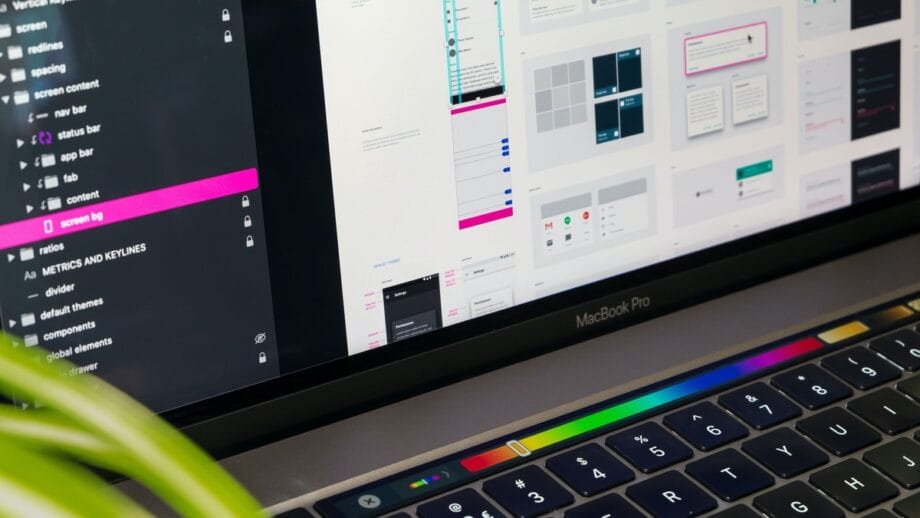In today’s digital age, apps have become an important part of us, and all credit goes to app development and developers. We are enjoying many new and improved apps as app development is blooming day by day.
Various apps have served different aspects of our lives, which has made our lives easier and more comfortable. The app development process involves the creation of new apps and the improvement of existing ones.
In the developing world of applications, Flutter and React Native have become Prime players in app development. To help you make a decision between Flutter and React Native for developing your app, this comparison examines the pros and cons of both platforms.
What is App Development?

App development is the process of creating an application for various purposes. It comprises seven stages of the application lifecycle planning, analysis, design, development, testing, software deployment, and maintenance.
An individual or a large entity can do it with large teams working on the project. Generally, software engineers develop apps with assistance from project managers, data scientists, designers, writers, and additional personnel.
There are several motivations for developing apps. Developing apps helps introduce new ideas to the market or improve existing products and offerings by adding additional benefits and functions.
The method of creating applications has changed the outcome of mobile app development. Flutter and React Native are two hybrid frameworks that one can use for mobile app development.
For most businesses, developing a native app for each platform is a waste of time and money. Therefore, they started looking for cross-platform mobile applications. And here they are wondering which one is better: React Native vs Flutter?
Related: The History of ReactJS (Infographic).
Flutter vs React Native: Key Differences

Let’s understand the key differences between Flutter and React Native with the following chart.
| Criterion | Flutter | React Native |
|---|---|---|
| Programming language | Dart as Programming Language | JavaScript is used for programming Language |
| Architecture | Flutter used Business Logic Component (BLoC) | React Native uses Flux and Redux |
| User Interface (UI) development | Flutter uses its own highly customizable widget. This allows developers to adjust their properties and styles to achieve a deceiving look and behavior across every platform. | Uses native UI widgets under the hood, which is why developers have the freedom to stay with the default platform’s styling. |
| Performance | The Flutter application performs fast. | React Native application performance is slow in comparison to Flutter. |
| Code Structure | The code structure is messy and unorganized. | The code is simplified and direct with JavaScript. |
| Industry adoption | is Lower because this platform is still in its infancy. | Higher adoption because of its long-term existence in this developing industry. |
| Learning curve | Flutter has a steep learning curve due to its unique programming language and architecture. | React Native has a shallow learning curve as it uses JavaScript. |
| Testing | Rich set of testing features. This feature allows the developer to perform unit tests. | Used third-party testing tools that are available for testing. |
| Native appearance | Greater native appearance because of the lack of third-party libraries. | Less native appearance due to the presence of third-party libraries and APIs. |
Flutter vs React Native: Pros and Cons

Both Flutter and React Native are the two most popular hybrid frameworks for cross-platform app development. Both have their pros and cons. Let us discuss some of them.
| Criterion | Flutter | React Native |
|---|---|---|
| Free and open-source | Yes | Yes |
| Popularity | 157k stars on GitHub (2023) | 112k stars on GitHub (2023) |
| Hot Reload feature | Yes | Yes |
| Development time | If designs vary between Android and iOS, it may lag | If iOS and Android designs differ, React Native may offer faster development than Flutter. |
| Time to market | Quick | Quick but slower than Flutter |
| Installation and Setup | Simple and fast installation and setup | It is quick to install, but it takes time to set up. |
| Maintenance | Easily updated version | Updating can be challenging |
| Documentation | Clear and comprehensive | It seemed more user-friendly but did not stand as Flutter |
| User Interface (UI) | Apps perform consistently in all versions | Apps developed using React Native tend to have unstable UI |
See also: Angular vs React: Which Framework is Better?
Knowing When to Use React Native or Flutter

There is no one-line answer to this question. Either of them could be better, depending on the developer’s preference and the requirements of the project. The experts suggest knowing the right platform saves time and money.
So, which one to choose? Here is an in-depth overview to help you choose between React Native and Flutter.
When to Use React Native?
Here are a few points to simplify when to use React Native:
- You can reuse components from your website or desktop application for a mobile application.
- React Native allows the use of already written codes, which helps to develop apps quickly.
- Your team consists of JavaScript experts who are acquainted with your current assets and are capable of utilizing the plug-ins, modules, and widgets found in the extensive npm repository.
- You have limited time to search for a group of React Native programmers.
- You are building a single-page application, like a dashboard for real-time data or a chat app.
When to Use Flutter?
Here are a few points to simplify when to use Flutter.
- You have a small budget (two teams are not required for native Android and iOS development).
- To improve overall start-up time and functioning and accelerate performance.
- You need to release a product quickly (Short Deadline).
- You want a component that creates a great UI.
- You want to have a pixel-perfect design.
- You want to create a cross-platform experience for your users (desktop, mobile, car infotainment).
FAQs

1. What is Cross-platform App Development?
The process of creating apps with an identical codebase that can run on multiple platforms and operating systems is Cross-platform app development. It lets programmers create and manage a single codebase that works across many operating systems and devices.
2. What is Flutter?
Flutter is a UI toolkit for creating fast, beautiful, natively compiled applications for mobile, web, and desktop. It is a free and open-source mobile framework that uses the Dart programming language for creating apps. Flutter is mainly intended for 2D mobile applications that are suitable for the iOS and Android operating systems.
3. What is React Native?
React Native is a free and open-source cross-platform framework that uses JavaScript as a programming language. Meta initially developed this platform to allow the use of already written codes. This helps to develop apps quickly. It uses a common language to build an app for iOS, Android, and Windows platforms, which allows for fast app development.
4. Is Flutter Better than React Native?
For some time now, Flutter has been winning ground on React Native in the popularity contest. This is because Flutter is considered to be simpler to use.
Additionally, a lot more solutions exist for bugs reported on GitHub than for React Native. However, there are fewer Flutter developers on the market, which is a considerable drawback.
5. Is Flutter Faster than React Native?
With the changes in the architecture of React Native, it has been getting closer to Flutter in terms of performance. Yet, the Flutter app might still be slightly faster than React Native.
6. Is React Native the Future of Mobile?
In the future, mobile app development won’t be solely dependent on one technology. React Native is the leading framework and will likely play an important role in the mobile development landscape.
However, many factors, like the growth of React Native, the introduction of new technologies, market trends, and the particular requirements of individual projects, will influence the future of mobile development.
Therefore, while React Native will play a role in mobile development going forward, it won’t be the only factor.
7. Can React Native Develop Apps for the Web?
React Native was created for mobile app development. It aims for operating systems like iOS and Android. It does not support web app development. But, depending on the way it is constructed, adding a new platform like Windows, MacOS, or the Web is possible.
8. Can Flutter Develop Apps for the Web?
Yes, Flutter can develop apps for the web, although its primary use is mobile app development. An extension called “Flutter for Web” allows developers to create web applications using the same codebase that is used for mobile applications. This allows you to develop web apps that share the same visual style as their mobile counterparts.
“Flutter for Web” is considered an experimental feature since it is in the development phase. So, it may have some limitations.
Related: React Native vs Hybrid: Which One is Better for Fintech App?
Conclusion

There is no one-size-fits-all answer for which is better for app development. The choice between Flutter and React Native ultimately depends on the needs and preferences of the project. Flutter and React Native frameworks have their pros and cons. So, before pitching an option, it is important to examine the particular requirements of the project, the expertise of your development team, and your limitations in terms of time and money.
When making a decision, take into account the trade-offs between development speed, performance, and code organization. Whichever framework you are going to choose to build, you can support your development process with a variety of resources, detailed documentation, and vibrant communities.





